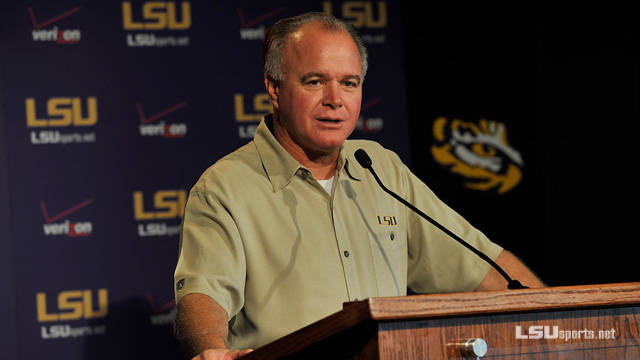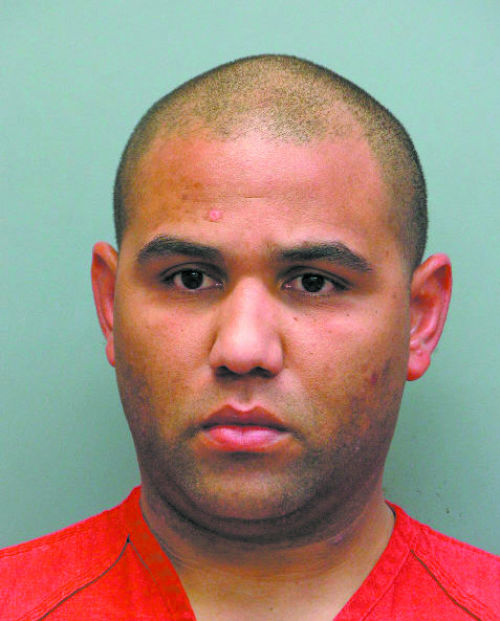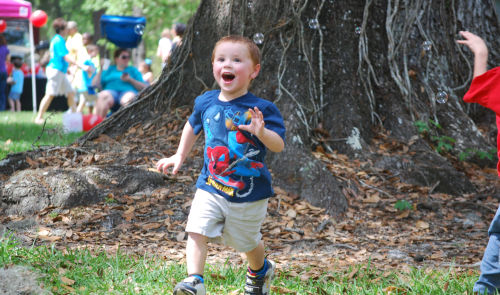
Tigers’ baseball unveils tough ’15 schedule
July 29, 2014
Cop’s meth arrest stuns brethren
July 29, 2014A working paper from Harvard University professors examining the happiness of United States cities based on a Center for Disease Control study, weighted by demographics and income, concluded that the five happiest cities all came from Louisiana.
Lafayette was ranked at the top, followed by Houma, Shreveport-Bossier City, Baton Rouge and Alexandria. Lake Charles was also ranked in the top 10.
If Louisiana is the happiest place in the United States, what makes this state – and specifically this area – among the happiest?
Houma Travel Communications Manager Joey Pierce and Terrebonne Parish President Michel Claudet believe it derives from the Cajun culture and the joy, or as the Cajuns like to say, “joie de vivre,” which means “joy of life.”
With the top happy cities located in Louisiana, people may wonder how the study pinpointed each city. Lafayette Councilman Kenneth Boudreaux reasoned that the Acadian city is number one on the list because that is where the Cajun culture started.
“The first thing people need to understand about Louisiana – meaning its food, festivals, culture and music, with all due respect to our friends in New Orleans and our friends close to New Orleans like Houma – the original Cajun lifestyle pertaining to the food and music is in the southwest part of the state.
“When you talk about things like boudin, crawfish and jambalaya, you are talking about St. Martinville, Opelousas and New Iberia, but the hub of those is Lafayette. That is why I think Lafayette takes the lead,” he said.
The councilman believes those are the major contributions that draw people to that area and keep them happy. Boudreaux also said having a major university like University of Louisiana Lafayette, and having ample high-paying job opportunities only adds to that.
“When you put all of those things together, like a good creole Cajun dish like a gumbo, all together the mix is unbelievable,” Boudreaux said.
Pierce, Claudet and Boudreaux were all adamant about one thing they feel is a major contributor to getting outsiders to visit or even choose live here: the people.
“Relationships are everything. Once you experience it, you see how people reach out to you and you see how people open their arms to you,” Boudreaux said. “That is what separates us. It is not just a statement; it is real. It is a place where people want you here.”
“You get vaccinated with it and it is hard to get it out of your system,” Claudet agreed. “I know so many people from high school or college who moved and managed to find their way back to our area.”
Pierce has been in the tourism industry for nine years and started as a tour guide. From his personal experience, he has known people who have visited the area and then, two or three years later, return to find a permanent location in Louisiana.
“Culturally, we do have a tendency to not meet new strangers, but we meet new people and they take a genuine interest and find out why people come here and what those people want to see here, Pierce said. “People see that and there is a genuine interest. The interest draws people in a lot.”
On the flip side, the study showed that New York was the most unhappy city in America. Claudet lived in New York for a while. He said there is no comparison as to which city is better because he was not able to enjoy the little things in a major city.
“I think when you get to a place like New York, and I lived in New York, it gets to be a real rat race,” the parish president said. “You end up not being able to enjoy the wonderful things that you have in life and we have a lot of good things to be happy for.”
One of the many questions people providing online feedback repeated about the study was the fact that Louisiana is usually ranked near the bottom in education, health care and other essential categories, so how could its people be so happy?
Pierce believes the competition in the job market is not as fierce because it is not overpopulated and ultimately says if “you can afford to live, then you tend to be happy.”
He has seen an upturn in tourism and the growth of Houma because of several factors, including the oil-and-gas industry.
Television and pop culture may also be impacting the region’s happiness, Pierce said
“We have had visitors come to our area because they watched ‘Swamp People’ and they decided to see exactly where that was,” Pierce said. “The portrayal can sometimes be a little unusual, but there are some bits of honesty there like with RJ and Jay Paul having a strong family connection, something that dates back to their culture. There are elements of truth in there.”
While not many people know how this study was calculated, it does not matter to them because they did not need a study to tell them how happy they are.
“I don’t know what exactly it is, but it is my belief that once they get a taste of people, the hospitality and the joy of life that we have, then it is a wonderful thing,” Claudet said. “All you need to do is look around and you can see how happy we are.”
Cooper McNamara chases bubbles in this file photo from a 2012 Easter-related event in Houma. The youngster’s face says it all: Houma people are happy.












